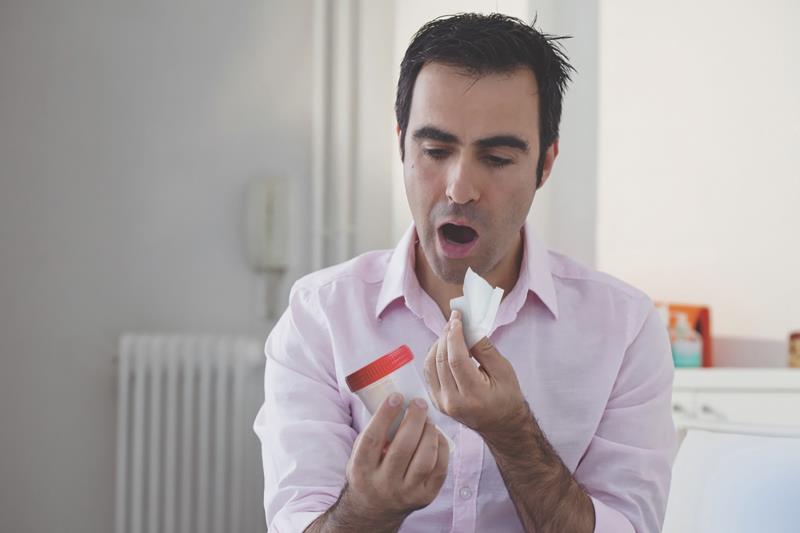
The 2019 novel coronavirus (2019-nCoV) is consistently detected in self-collected saliva specimens of infected patients in a recent study, suggesting a potential role for saliva to be used in noninvasive diagnosis and viral load monitoring of coronavirus disease 2019 (COVID-2019).
In the study, researchers from the University of Hong Kong (HKU), Queen Mary Hospital, Princess Margaret Hospital, and Queen Elizabeth Hospital evaluated self-collected saliva specimens of 12 patients (median age, 62.5 years; 7 male) with laboratory-confirmed 2019-nCoV infection. Saliva specimens were collected at a median of 2 days after hospitalization by asking patients to cough out saliva from the throat into a sterile container. [Clin Infect Dis 2020, doi: 10.1093/cid/ciaa149]
Initial saliva specimens were positive for 2019-nCoV in 11 patients (91.7 percent), with a median viral load of 3.3 x 106 copies/mL.
Among six patients with serial saliva specimens available, a general decline in salivary 2019-nCoV RNA levels was observed in most patients after hospitalization. Viral culture showed presence of live viruses in the saliva specimens of three patients.
According to the research team led by Professor Kwok-Yung Yuen of HKU, these results demonstrate the potential for saliva to be used in noninvasive diagnosis and viral load monitoring of patients with COVID-19.
“The use of saliva is preferred over nasopharyngeal or oropharyngeal specimens because this would reduce discomfort for patients and health hazards for healthcare workers during repeated sampling, and also reduce the risk of nosocomial 2019-nCoV transmission,” the researchers suggested. “Its use allows specimen collection outside hospitals, where airborne infection isolation rooms are not available, such as in outpatient clinics or the community.”
At the Hospital Authority, self-collected deep-throat saliva specimens are now used for COVID-19 detection in adult patients presenting to Accident and Emergency Departments (AEDs) or general outpatient clinics (GOPCs) with fever and respiratory symptoms or mild chest infection who do not need hospital admission. This measure, implemented since 19 February 2020, allows patients to collect deep-throat saliva specimens at home in the early morning of the next day and return the specimens to the AED or GOPC for laboratory testing by the Department of Health’s Public Health Laboratory Centre. [https://www.ha.org.hk/haho/ho/pad/200218EENG.pdf]
With viral culture showing live viruses in the saliva specimens of patients, the researchers cautioned that 2019-nCoV may be transmitted via saliva directly or indirectly even among patients without cough or other respiratory symptoms. “Our findings reinforce the use of surgical masks as a control measure,” they emphasized.
On 16 February 2020, the Hong Kong Society for Infectious Diseases issued a press statement calling for the use of surgical masks by all persons at all times in public areas regardless of the presence or absence of COVID-19 symptoms, as well as continued adoption of good personal hygiene measures, to prevent the spread of COVID-19 in Hong Kong.